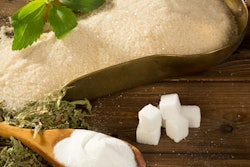
Adding a common anti-tooth decay milk product to processed yogurt not only prevents enamel demineralization but also repairs lesions on the harder outer layer of teeth, according to a study published in the December issue of the Journal of Dentistry.
Mixing casein phosphopeptide-amorphous calcium phosphate (CPP-ACP) into processed, sugar-containing yogurt significantly hindered demineralization and repaired existing lesions on the enamel during in vitro experiments, according to the authors.
"The addition of CPP-ACP to these yogurts may help prevent demineralization and promote enamel subsurface lesion remineralization, and therefore, make them safer for teeth," wrote the group, led by Peiyan Shen, PhD, of the Melbourne Dental School at the University of Melbourne (J Dent, December 2020, Vol. 103, 103506).
Easy snack, sugar bomb
Yogurt has been touted as an easy, healthy snack, but that's the plain variety -- not yogurt that contains added sugars and extras such as sprinkles and cookie crumbles. Processed yogurt causes significant enamel subsurface demineralization due to large amounts of table sugar, lactic acid, and bacteria produced from live lactic acid. People who have poor oral hygiene and eat processed yogurt regularly may experience greater dental enamel erosion.
The anticaries compound CPP-ACP, unlike fluoride, can be added to food that contains sugar, giving it commercial potential as a food additive. CPP-ACP is already added to some toothpastes and mouthwashes on the market. It is generally recognized as safe and has almost no effect on taste.
In the current study, demineralized lesions were created on the enamel of 30 extracted human third molars. The researchers then exposed the samples to artificial saliva with Danone yogurt (which is how the Dannon brand is sold in Australia) with 0.2% CPP-ACP or 0.5% CPP-ACP at 37° C for two weeks. Every day, the yogurt and artificial saliva were replaced with fresh preparations. The enamel slabs were embedded, sectioned, and analyzed using transverse microradiography to measure changes in enamel lesion depth and subsurface mineral content.
Major effect
Processed yogurt alone produced significant enamel subsurface demineralization, the researchers found. However, adding 0.2% CPP-ACP significantly reduced demineralization compared with yogurt alone. Increasing CPP-ACP to 0.5% had the biggest effect: This amount completely inhibited demineralization and produced approximately 13% remineralization of the initial enamel lesions, according to the group.
The findings indicate that the compound has the potential to reduce caries and other dental problems associated with eating too many processed foods, the authors concluded.
"As CPP-ACP is derived from milk and is GRAS (Generally Recognized As Safe) affirmed as a food additive, these anticariogenic properties make it an ideal additive to help reduce cariogenicity of processed foods," they wrote.




















